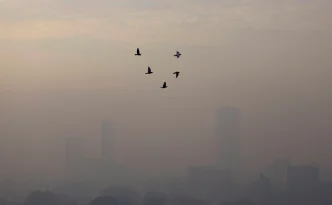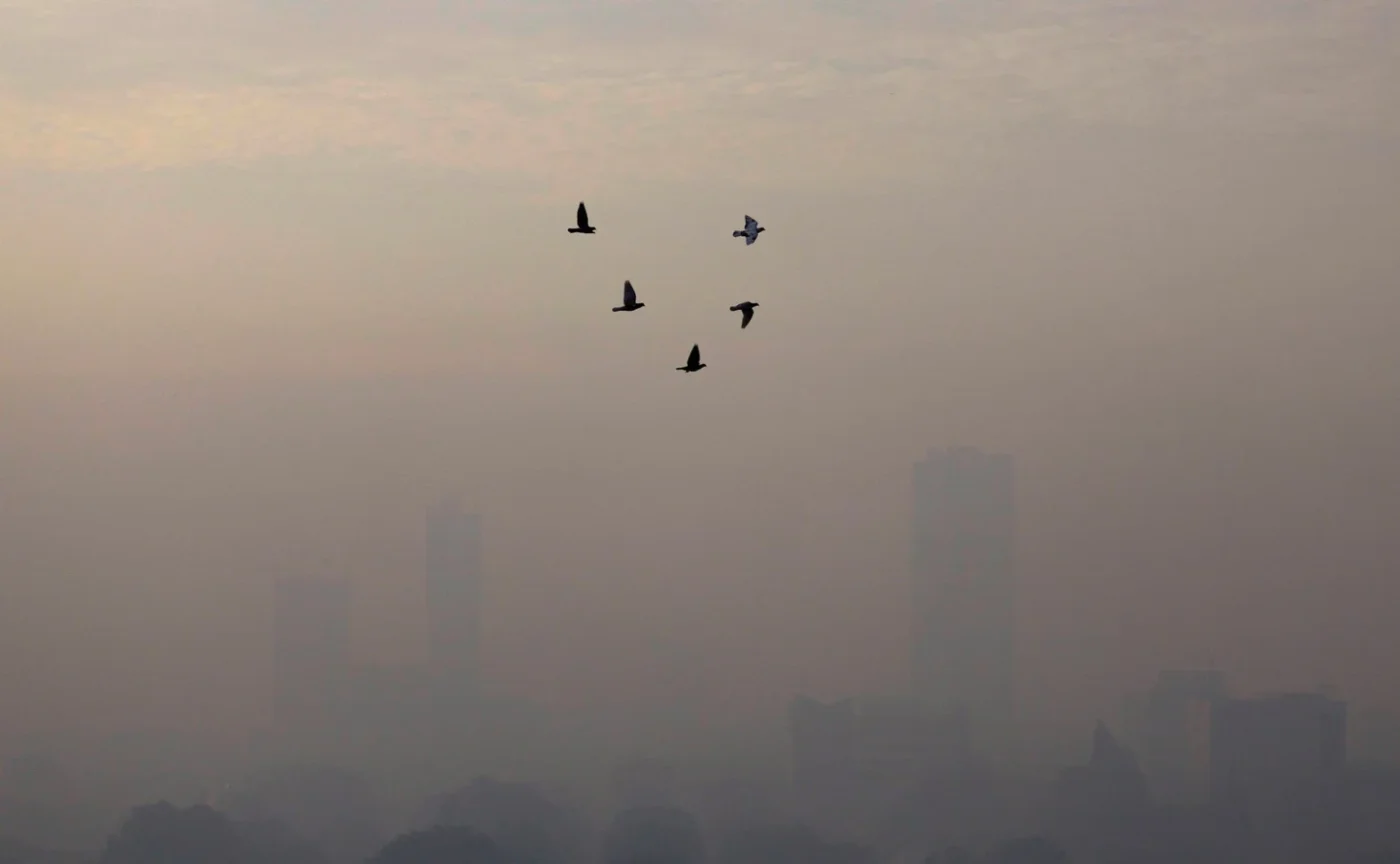Jakarta, the sprawling capital of Indonesia, is once again grappling with a severe air pollution crisis, as skyscrapers disappear behind a thick veil of smog and air quality readings plummet to unhealthy levels. On June 10, 2025, the Environmental Ministry reported that the Air Pollutant Standard Index (ISPU) in several areas of Greater Jakarta fell into the “unhealthy” category, a trend that persisted over the preceding days. With motor vehicle emissions identified as the primary culprit, contributing up to 57 percent of pollution during the dry season, and coal-fired power plants adding to the toxic mix, the crisis has reignited public concern and demands for government accountability.
Worsening Air Quality Sparks Alarm
The air quality in Jakarta and its surrounding regions, including South Tangerang in Banten, and Bekasi and Depok in West Java, has deteriorated significantly in recent weeks. Real-time monitoring by Swiss air quality technology company IQAir recorded readings between 153 and 159—classified as “unhealthy”—for three consecutive days last week. Even with a slight improvement to 142 on Sunday, deemed unhealthy for sensitive groups such as children and the elderly, Jakarta ranked as the fourth most polluted city globally. Social media platforms have been flooded with images of smog-covered skylines and concerned citizens sharing local air quality data, highlighting the growing public frustration over the health risks posed by this persistent issue.
The Environmental Ministry has pinpointed motor vehicle emissions as the dominant source of pollution during the dry season, with coal-fired industrial activities contributing 14 percent, construction dust 13 percent, and open burning 9 percent. Secondary aerosols, formed through atmospheric reactions of pollutant gases, account for the remainder. This breakdown underscores the multifaceted nature of Jakarta’s air quality crisis, which demands a comprehensive response beyond isolated measures.
Coal Power and Traffic: A Toxic Combination
Environmental activists have long criticized the government’s reliance on coal-fired power plants, particularly the 16 facilities operating in Banten and West Java, as a major contributor to the region’s pollution. Greenpeace campaigner Yenny Silvia Sirait emphasized that the crisis “stems from a lack of initiatives and regulations to reduce the use of coal-fired power plants surrounding Jakarta” alongside the rising dependence on private vehicles. She warned that without a clear roadmap to phase out coal and expand green public transportation, the dire conditions of 2023—when Jakarta recorded highly unhealthy air quality for months—could easily return.
In 2023, public outcry and national concern forced the government to temporarily shut down several units of the Suralaya coal-fired power plant in Cilegon, Banten, and establish a task force to address the issue. However, activists argue that these measures were insufficient and temporary, failing to address the root causes of the pollution. Yenny told a local outlet on Thursday that “the government has not fully met its responsibilities” despite a landmark 2021 citizen lawsuit victory, which mandated stricter environmental regulations, improved monitoring systems, and periodic emissions tests for older vehicles.
Government Response: Progress or Posturing?
In response to the current crisis, the Environmental Ministry has outlined several measures aimed at curbing pollution. Deputy for Pollution and Environmental Damage Control Rasio Ridho Sani stated in a press release on Tuesday that the ministry had “taken intensive measures” to address the issue. These include instructing state-owned oil and gas company Pertamina to accelerate the distribution of low-sulfur fuels with sulfur content below 50 parts per million (ppm), a significant improvement over the widely used Pertalite fuel, which contains up to 500 ppm and contributes to dirtier combustion.
Additionally, the ministry has shut down nine polluting companies in Bekasi, Bogor, and Tangerang, including metal smelters, textile producers, and hazardous waste processors. While these actions signal intent, critics argue they fall short of the systemic change needed. Elisa Sutanudjaja, executive director of the Rujak Center for Urban Studies and a petitioner in the 2021 lawsuit, expressed skepticism about the government’s commitment, stating on Friday, “I don’t see many changes now” following the court ruling. She also questioned the effectiveness of new Jakarta Governor Pramono Anung’s policy mandating public transport use for civil servants, arguing that without restrictions on private vehicle use, such measures are unlikely to yield significant results.
Health and Economic Implications
The health implications of Jakarta’s air pollution are profound, particularly for vulnerable populations. Prolonged exposure to high levels of particulate matter and pollutants can lead to respiratory issues, cardiovascular diseases, and other chronic conditions. Children, the elderly, and individuals with pre-existing health conditions are at heightened risk, with many residents reporting symptoms such as coughing and eye irritation during periods of poor air quality. The economic toll is equally significant, as healthcare costs rise and productivity declines due to illness-related absenteeism.
Moreover, Jakarta’s persistent ranking among the world’s most polluted cities damages Indonesia’s international reputation and could deter tourism and foreign investment. Addressing the crisis is not merely an environmental imperative but a socioeconomic one, requiring coordinated efforts across multiple sectors. The cost of inaction is steep, with studies estimating that air pollution-related health issues already burden Indonesia’s economy with billions in losses annually, though exact figures for 2025 remain under analysis.
Policy Challenges and Regional Coordination
One of the central challenges in tackling Jakarta’s air pollution lies in the fragmented nature of governance across Greater Jakarta, which spans multiple administrative regions. While Jakarta itself falls under the authority of its governor, surrounding areas like Banten and West Java are governed by separate provincial administrations, each with its own priorities and policies. Environmentalists argue that without a unified strategy, piecemeal efforts—such as shutting down a handful of polluting factories or mandating public transport for civil servants—will fail to address the scale of the problem.
Yenny of Greenpeace has called for regional administrations to collaborate on expanding green public transportation infrastructure and halting the development of new coal-fired power plants. Such measures, she argues, are essential to reducing reliance on private vehicles and transitioning to cleaner energy sources. However, implementing these changes faces significant hurdles, including funding constraints, political resistance from industries reliant on coal, and public reluctance to shift away from personal vehicles in a city where public transport remains underdeveloped in many areas.
Public Sentiment and the Path Forward
The public’s growing frustration with Jakarta’s air quality is palpable, as evidenced by the outpouring of concern on social media. Residents are increasingly vocal about the government’s perceived inaction, with many questioning why court-ordered reforms from the 2021 lawsuit have yet to materialize in meaningful ways. The issue has also sparked broader discussions about environmental justice and the right to clean air, a fundamental concern that transcends political and economic divides.
As Jakarta chokes under a blanket of smog, the urgency of systemic reform cannot be overstated. The government’s recent measures, while a step in the right direction, must be part of a broader, long-term strategy that prioritizes public health over industrial interests. Whether regional leaders can rise to the challenge remains an open question, but for millions of residents breathing toxic air, the need for action is clearer than ever.















